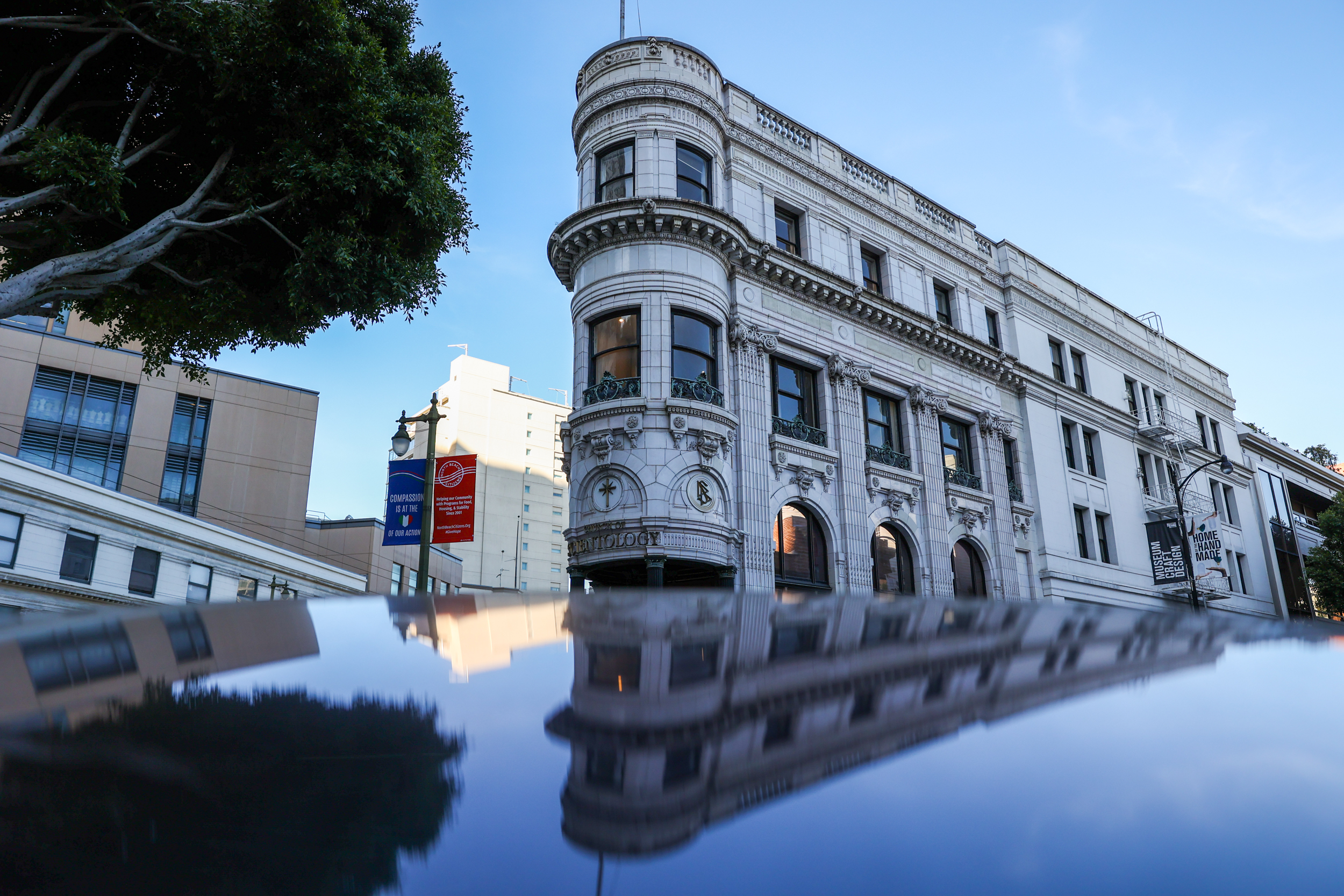Adore it or despise it, everyone recognizes the spiked Transamerica Pyramid, which celebrated its half-century last year. But not everyone realizes that the original building to bear that name, iconic in its own right, is just across the street.
Left out of the numerous retrospectives on its newer and bigger brother, the original Transamerica building at 701 Montgomery St. was built in 1909. Designed by architect Charles Paff, it was named for the insurance and financial company that did business there and is now home to San Francisco’s only Church of Scientology.
Also known as the Old Fugazi bank building in honor of its original owner, John Fugazi, who opened a two-story bank for Italian immigrants on the site, the terra cotta-clad building in the shape of a flatiron proudly occupies the junction between Montgomery Street and Columbus Avenue.
If you look up, you’ll notice the building boasts fire escapes with the Star of David on them in what is a nod to the site’s storied history. In 1849, long before the present building existed, 40 Jewish pioneers gathered here on Yom Kippur for San Francisco’s first Jewish religious services (a plaque on the Montgomery side commemorates the event).
Amadeo Peter Giannini purchased the building in 1928, when it became the Bank of America. Ten years later, it took on the name of Giannini’s increasingly sprawling financial corporation: Transamerica.
More than 70 years later, then-mayor Willie Brown attended the Church of Scientology’s grand opening on Nov. 29, 2003, where church leader David Miscavige spoke to an assembled crowd from a red-draped balustrade beside a massive portrait of Scientology founder L. Ron Hubbard.
Paff’s designs seem to have a knack for attracting secretive groups with storied histories. He also built the Knights of Pythias building at Valencia and McCoppin streets, a building that served as the headquarters of a fraternal order whose members were given an engraved sword upon induction.
The Church of Scientology, for its part, has been a good steward of the historic landmark—preserving its ornate ironwork, intricate corbels and basement bank vaults—while ushering in a more secretive chapter of its history (and adding its own symbolism to the facade).
Come for the Star of David fire escape, stay for the 200-question personality test? We’ll let you decide.
